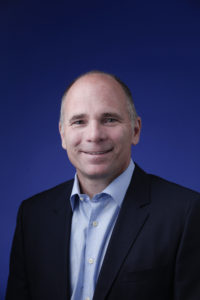By Laura Thill
When DSOs provide members with a consistent message and consistent support, providers can offer patients the best possible care.

As group dental practices continue to develop a strong culture of clinical excellence and an ideal patient experience, while maintaining a solid boundary between their business practices and their ability to deliver quality clinical care, dental service organizations (DSOs) are challenged to deliver a consistent message to their members about the support they offer.
“As chief operations officer at Great Expressions Dental Center (GEDC), one of my goals is to visit our member offices often to help deliver a consistent message, see that the message we are sending is the right one and, when necessary, tweak that message,” says Greg Nodland. Dentists and patients alike must be educated on the value DSOs offer, he notes. “We make care affordable and allow doctors to focus on dental care, and we enable dental team members to develop business skills, such as the ability to read income statements. We want that message to be consistent, so when a consumer, prospective dentist or employee sees it, they will know it is a good thing.”
The key is to have established procedures to permit the clinical/office team to focus on patient care, while the business team handles those areas not associated with direct care of patients, Nodland continues. “The two must be separate, and at GEDC we go to great lengths to ensure clinical providers report to doctors, providing them the autonomy to focus on the patient and [his or her] needs.”
Changing expectations
Patients tend to be familiar with the concept of solo practice, notes Nodland. “Solo is what people know, so consumers’ expectations remain the same,” he says. That said, solo practitioners often face similar challenges to DSO members, he points out. Both must attract quality associates and staff, as well as new patients. And, both must work through the constantly changing maze of insurance plans, increased government regulation and human resource complications, and more. “However, in a solo practice the doctor is expected to care for [his or her] patients AND address these real challenges,” he says. “In a DSO, due to the support we provide and the clear delineation of clinical and business, our providers can better focus on patient care without all of those distractions AND have a more balanced life.”
Slowly, consumers are learning about the value – such as affordability and convenience – that DSOs offer, Nodland continues. They are also discovering that some DSOs, like Great Expressions Dental Centers, invest more in clinical care, including digital technology and hiring an infection control specialist for the practices, he adds.
“Dentists enter this field to care for patients,” says Nodland. Their goal is to restore or maintain their patients’ dental health, he notes. Their ability to do this is contingent on having a strong practice, which is possible with the support from their DSO, he explains. “It can be lonely as a solo practitioner. DSOs offer their providers a closer community of dentists, allowing them to interact among peers, coordinate treatment with fellow group specialists, enhance their skills through CE and professional development, and generally thrive within what we call a culture of dentistry. For example, in addition to the internally developed content it offers, GEDC has partnered with dental manufacturers, such as Dentsply and Biomet 3i, to provide customized CE classes. “DSOs also offer IT and facility support, providing the newest and most efficient technology as well as ensuring the practices stay up and running,” Nodland continues. “They offer everything from developing and monitoring a top notch compliance program to providing support through experienced clinical partners who can help mentor and introduce new services, like Invisalign.” DSOs are a team, stepping in with the support functions a solo practice may lack.
The value of consistency
Dental owners and their staff – particularly the office manager – face greater demands than ever before, as the pace of the dental industry continues to quicken, as patients expect more and better service, and as the insurance and regulatory landscape evolves. In turn, DSOs must help ensure their providers follow consistent protocols throughout their group practice. This can be achieved through training; consistent, frequent messaging; close monitoring; mentorship; and by having clinical partners work closely with team members to ensure their questions are thoroughly answered.
“DSOs are a culture of core principles,” says Nodland. “To achieve that, you want all team members following similar protocols and the same culture.” This is beneficial to patients, who can expect “the same experience from location to location,” he points out. “For example, if I go to the GEDC office near work, but take my kids to the GEDC office near home, the entire family gets the same great care and patient experience.”
In addition, a culture of consistency “allows the DSO management to better leverage training,” he says. “If each office handles management issues in its own way, there is no way to develop a real training curriculum; management – especially monitoring – becomes difficult. By standardizing the manner in which the offices operate business practices (i.e. scheduling, billing and collections, etc.), it is easier to train, monitor and manage. This is key to building a platform.”
Indeed, moving forward, DSOs should continue to play an increasingly vital role for their providers, notes Nodland. Particularly as insurance reimbursement and structure continues to evolve, “We expect to see more smaller DSOs pop up, similar to the emergence of urgent care centers in the medical industry,” he says. “There also will be alignment among DSOs and possibly mergers between large dental groups.
“Dental owners and managers need to be dynamic and stay on top of the ever complicated business climate,” he says. “At the same time, they must develop and improve their clinical skills and processes.” As DSOs become increasingly more established, they will offer better and better tools to help them achieve this, he adds.

